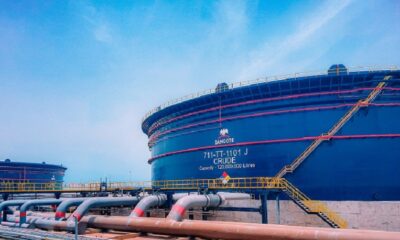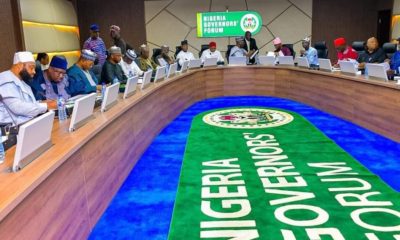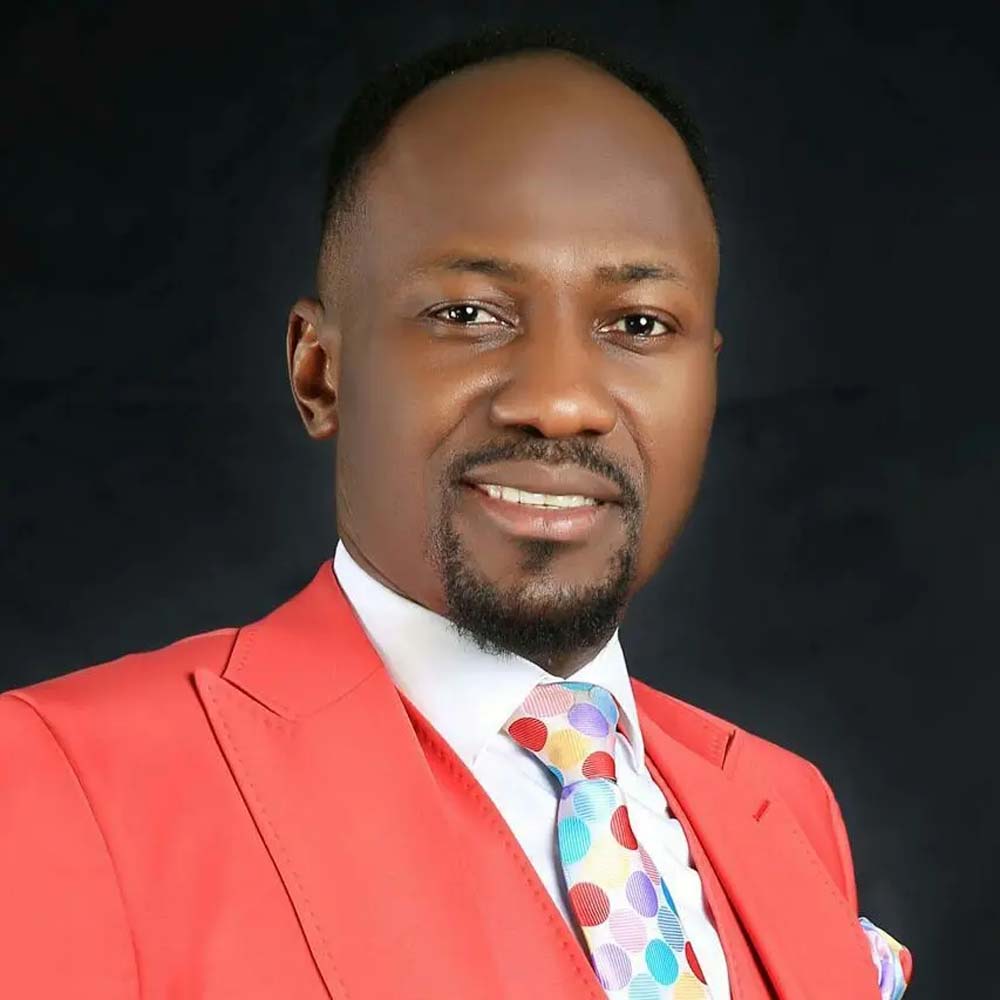Business
Dangote Refinery vs NNPCL: Unfortunately, Nigeria needs both companies to thrive
It is also sad to note that the Dangote refinery has not produced any duly signed and legally enforceable agreement with any domestic crude oil supplier prior to this time and for the purpose of feedstock supply to the refinery, which is very strange for a business of that magnitude, and a highly unusual and unprofessional practice in the oil and gas industry. This is actually the crux of the matter as the oil industry apparently operates differently from the cement and other industries where Mr. Dangote has been an experienced player for decades.
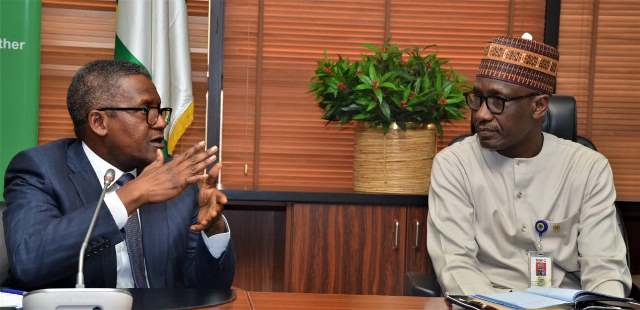
By Yemie ADEOYE
THE saying that when two elephants fight, the grass suffers is being brought to light and affirmed more than any time in recent history by the ongoing tussle nay controversy between the Dangote refinery and the federal government of Nigeria as represented by the state-owned Nigeria National Petroleum Company Limited, NNPCL and the industry regulatory agency, the Nigerian Midstream and Downstream Petroleum Regulatory Authority, NMDPRA.
Gracefully, the minister of petroleum resources, Mr. Bola Tinubu, who also ‘doubles’ as Nigeria’s President has waded in to offer some succor via a directive to the NNPCL to sell a percentage of Nigeria’s crude in Naira to the Dangote refinery. That was a relief according to several industry watchers even if it is seen as a short term solution to a long term situation.
Even as that seem to have calmed frayed nerves for a bit, reports and counter reports continue to hit the news, thereby keeping the issue on the front burner, even after a presidential mediation. Only recently, there has been a back and forth over the facilitation and non-delivery of 29 million barrels of crude oil to the refinery.
It goes without saying that the advent of the Dangote industries in the business of refining at the time it did, and up until this moment was and is still is, a necessity for the Nigerian economy. Even if it’s just for the dignity and pride it brings to the African continent, that alone is enough to fight or die for.
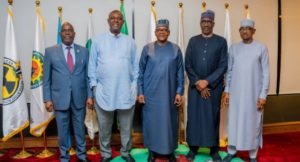
Nigeria’s Minister of State for Petroleum Resources, Heineken Lokpobiri , flanked by Alhaji Aliko Dangote, and heads of NNPCL, NUPRC, NMDPRA
This is outside other immediate economic advantages that accrues to Nigeria as a country, from mass employment to indirect domestic businesses, FDI attraction reduction in forex need and pressure amongst others. The list as they say is endless, only if our business climate is not unduly charged, cumbersome, and difficult for no logical reason.
Almost the same thing applies to the NNPCL, save for the fact that it is a public trust. This company, since inception in 1977 is now almost the single most important company in Nigeria, if only we allow it to work for the country. The issues aren’t so difficult to address, but it seems Nigeria has allowed undue politics and interference to affect the functionality of the NNPCL.
Oil, amongst a few others, is a globally priced commodity, which reacts negatively to undue and non-technical interference. This is the bane of the NNPCL debacle, and until the company, supposedly the largest oil company south of the Sahara is completely free of this interference and obstacles, thereby operating like any other International Oil Company, it will be absolutely impossible for the company to reach its full potentials for the benefit of the global oil and gas industry and the Nigerian economy specifically.
Over the decades, there has been several suggestions on the most beneficial modus operandi for the company, with many experts agreeing that the Nigeria Liquefied Natural Gas, NLNG module will best serve the oil behemoth and better position the company for international plays just like it’s supposed contemporaries, Saudi Aramco, PETROBRAS, PETRONAS, Equinor, SONANGOL and their likes.
Currently, the operational rig count in Nigeria is around 15 rigs. This is abysmally low when compared to other major oil cities or countries. The state of Texas in the USA has 278 operational rigs at work at the time of this report, while Saudi’s Aramco has 300. Algeria has the highest in Africa at 42 rig counts, while even troubled Libya has 20 operational rigs at the moment.
This should serve as a crucial area of focus for the current Nigerian government and indeed, the NNPCL, in order for the country to at least meet the traditional OPEC quota of 2.4 million barrels and enable it meet its contractual obligations, and still feed all domestic refineries starting with the Dangote refinery, with a proviso to produce first for the nations’ local consumption before any export in the interest of national security.
It goes without saying that there would be interests, both foreign and domestic that prefers the status quo and current modus operandi to stay in effect, as they are direct and indirect beneficiaries of the current system, and this is why it is pertinent for the two companies to come together for the common good and national interest.
We live in a world where perception is almost reality, and Nigeria must never lose sight of this fact. Mr. Aliko Dangote is first and foremost a Nigerian, subject to the laws of the country, hence there are several legitimate ways the government can protect its own interest, if any without resorting to a public show.
Again, Inspite of himself and whatever allegations, sentiments or petitions that are leveled against him, Aliko Dangote ought to be properly managed by the regulators and the government for the giant strides he has embarked upon, thereby putting Nigeria on the global map for something positive outside of entertainment.
The nation’s regulator calling out such an investor, said to be the highest single tax payer in the country in such casual manner and on national television is not in the best interest of the nation’s fledgling economy, and image, especially in such a news sensitive industry.
It is also sad to note that the Dangote refinery has not produced any duly signed and legally enforceable agreement with any domestic crude oil supplier prior to this time, and for the purpose of feedstock supply to the refinery, which is very strange for a business of that magnitude, and a highly unusual and unprofessional practice in the oil and gas industry. This is actually the crux of the matter as the oil industry apparently operates differently from the cement and other industries where Mr. Dangote has been an experienced player for decades.
However, the Nigerian people are of any consideration in this equation, then It is in the best interest of Nigeria’s economy that the NNPCL, the NMDPRA, and the owners and management of the Dangote refinery sheath their swords and work together for the common good of the country. If that is the focus, it will be far too difficult to fight so publicly and so dirty. The opportunity of this massive Nigerian establishment must never be blown on the altars of ego and personal interest.
The job of any government is to create a conducive atmosphere for every business interest both local, foreign, public or private to thrive, and for a struggling economy which currently begs for foreign direct investments above all else, no ambassador is better positioned for that message at this moment, than Mr. Aliko Dangote, Inpsite of himself. He has been there, and against all odds, he has done that which others are too concerned, or too cautious to do. The NNPCL has to strategically increase its crude oil production to meet new demands. the company has to be intentional about this, it certainly isn’t a rocket science to achieve that, and that should be the log term focus.
That refinery, should be to the benefit of the NNPCL, the people and government of Nigeria, and of course the owners and management of the company, and this can only happen if national interest is the collective goal.
A sports team does not play or score goals against itself and still appear normal to spectators.
Business
Savannah Energy Provides Unaudited FY 2024 Trading Updates

Savannah Energy has shared a trading update on its Nigerian operations and other markets in Africa, including up-to-date cash collections in its Nigerian business.
According to the update, made available on Thursday in Lagos, its gross production in Nigeria averaged 23.1 Kboepd for FY 2024, broadly in line with the prior year’s 23.6 Kboepd, of which 88% was gas (FY 2023: 91%).
On the update, CEO of Savannah Energy, Andrew Knott, said, “I am pleased to provide a FY trading update which demonstrates the continued progress we have made in 2024, a year which saw the highest level of cash collections ever recorded by our Nigerian business. 2025 is expected to be an exciting year for our Company: we have a large planned operational programme in Nigeria which is anticipated to enhance both our oil and gas production levels and capacity; we intend to progress our R3 East oil development project in Niger; we continue to pursue key acquisitions in the upstream oil and gas space; and we continue to seek to build our power business.
“Fundamentally, Savannah remains unequivocally an “AND” company, seeking to deliver strong performance both for the short AND long term across multiple fronts, and pursuing growth opportunities in both the hydrocarbon AND power sectors.”
The update It also shows that it generated a Total Income of US$393.6 million in 2024, compared to FY 2023’s US$289.8 million. This consists of Total Revenues of US$258.7 million and Other operating income of US$134.9 million.
The report also shows that Savannah’s FY 2024 Total Revenues were ahead of the previously issued financial guidance of greater than US$245 million, while FY 2024 financial guidance is reiterated for Operating expenses plus administrative expenses at ‘up to US$75 million’. The company expects its FY 2024 capital expenditure to come in lower than planned (previously guided at ‘up to US$50 million’) due to the phasing of spend.
ALSO READ: CSR: Dangote Awards Scholarships To 473 Students
According to the update, Savannah’s cash collections in 2024 amounted to US$248.5 million, a slight increase from the US$206 million it received in 2023. The report further shows that its cash balances as at 31 December 2024 stood at US$32.6 million, compared to the 31 December 2023 figure of US$107.0 million.
The report shows that the company’s midstream subsidiary, Accugas Limited, had as at 31 December 2024 drawn down on its NGN332 billion of the NGN Transitional Facility, with the resulting funds being converted to US$, which, along with cash held, was used to partially prepay the existing Accugas US$ Facility, leaving a balance as at 31 December 2024 of approximately US$212.3 million.
The report also provided new updates on Accugas’ US$45 million Uquo Central Processing Facility (“Uquo CPF”) compression project in Nigeria, noting that its commissioning which will enable the expansion of gas production in the medium term is well underway.
The report highlighted the progress being made in the procurement process of long lead equipment in Nigeria for a potential two-well drilling campaign on the Uquo Field in H2 2025, with an additional gas development well expected to add up to 80 MMscfpd of supplemental production capacity and a potential exploration well targeting an Unrisked Gross gas initially in place (“GIIP”) of 154 Bscf (25.7 MMboe) of incremental gas resources.
The update shows that progress is also being made in the planned Savannah acquisition of Sinopec International Petroleum Exploration and Production Company Nigeria Limited, whose principal asset is a 49% non-operated interest in the Stubb Creek oil and gas field (“Stubb Creek”), with regulatory approval and completion being targeted in Q1 2025. Following the completion of the acquisition, Savannah intends to commence an expansion programme which is anticipated to increase Stubb Creek gross production from an average of 2.7 Kbopd in 2024 to approximately 4.7 Kbopd.
In Niger, Savannah continues to seek to progress its 35 MMstb (Gross 2C Resources) R3 East oil development in South-East Niger, while it continues to push for a potential alternative transaction structure to acquire a material stake in producing oil and gas assets in South Sudan as previously announced on 20 December 2024.
On the renewable energy front, the update shows that Savannah has up to 696 MW of renewable energy projects currently in motion, including the up to 250 MW Parc Eolien de la Tarka wind farm project in Niger and the up to 95 MW Bini a Warak hybrid hydroelectric and solar project in Cameroon. A firm believer in Africa’s transition to renewable energy, Savannah continues to target a portfolio of up to 2 GW+ of power projects in motion by the end of 2026.
Business
Nigeria Can Achieve 5.5% GDP Growth – NESG
The Nigerian Economic Summit Group (NESG) has projected that the country has the potential to achieve a 5.5% growth in Gross Domestic Product (GDP) if critical policy reforms are sustained.
This was disclosed on Thursday during the launch of the NESG’s 2025 Macroeconomic Outlook report.
Speaking at the event, the Chief Economist and Director of Research & Development at NESG, Dr. Olusegun Omisakin, highlighted the need for more efficient policy implementation to unlock Nigeria’s economic potential.
READ MORE: Davido Is Richer Than His Billionaire Father – Ibrahim Chatta Claims
“We believe at the optimal level, if we embark on more efficient policy reforms, the Nigerian economy has the potential, the GDP to end up at 5.5 per cent, and we believe that this is achievable,” Omisakin stated.
More to follow……….
Business
CBN Approves Release Of Nigerian FX Code
The Central Bank of Nigeria (CBN) has announced the release of the Nigerian Foreign Exchange (FX) Code, a set of guidelines designed to promote ethical conduct among authorized dealers in the country’s FX market.
In a statement, the apex bank disclosed that the official launch of the Code would take place on Tuesday, January 28, 2025, at the CBN Head Office Auditorium in Abuja.
READ MORE: Dangote Denies Culpability In Pumping Up Petrol Price
“The Central Bank of Nigeria has approved the release of the Nigerian Foreign Exchange (FX) Code as a guideline to the banking industry to promote the ethical conduct of authorised dealers in the Nigerian Foreign Exchange Market,” the statement read.
The introduction of the FX Code is expected to enhance transparency, accountability, and professionalism within Nigeria’s foreign exchange ecosystem, aligning it with global best practices.
The event is anticipated to attract key stakeholders in the financial and banking sectors, as well as representatives from authorized FX-dealing institutions across the country.

